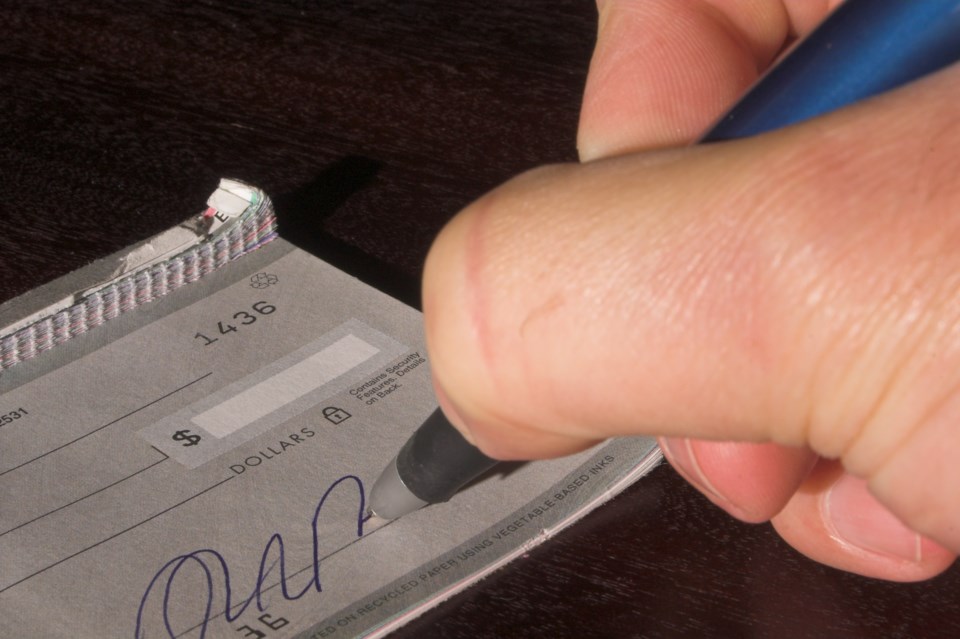NEWS RELEASE
ONTARIO PROVINCIAL POLICE
*****************
The Ontario Provincial Police Anti-Rackets Branch and Serious Fraud Office Ontario, in concert with the Canadian Anti-Fraud Centre, have provided another awareness newsletter in this ongoing fraud prevention campaign.
This campaign started in March to inform and educate the public on the importance of protecting yourself from being a victim of fraud. This year’s theme is impersonation, and focuses on scams where fraudsters will claim to be government officials, critical infrastructure companies, and even law enforcement officials.
The Canadian Anti-Fraud Centre will be sharing advice through our website, Facebook and Twitter pages.
COVID-19 has created an environment that is ripe for fraud and online criminal activity. People who have never shopped online before have turned to the internet for groceries, everyday shopping, banking and companionship.
In 2021, frauds associated to buying or selling goods or services online accounted for more than $21.1 million in reported losses. Non-delivery scams (including puppy scams, rental scams, and deceptive marketing of counterfeit goods) have all increased over the pandemic period.
Animal scams begin as classified ads for lower-priced or free animals. The majority of these feature puppies or kittens. After an exchange of messages, you are asked to send one payment after another. You are told that the money sent covers shipping, vaccinations, certificates, insurance, etc. In the end, you never receive the promised pet.
Fraudsters are creating classified ads for property rentals that are available in ideal locations. The ads are posted with below-average prices to attract more consumers. Interested consumers will receive prompt responses with photos stolen from legitimate ads. To secure the rental, fraudsters will ask that a payment is made quickly.
Counterfeit merchandise
Canadians shopping online need to be on the lookout for deals that can be too good to be true. The Canadian Anti-Fraud Centre continues to get reports of Canadians buying merchandise online that turns out to be counterfeit. Websites and advertising of counterfeit goods are often made to mimic legitimate sites, and will use tactics such as “Today Only” or “Limited Time Offer” to justify the drastic discounts. Traffic to these websites is generated by paid advertisements often displayed on various sites, including social media (Facebook, Instagram, et al.).
It is also important to point out that counterfeit goods are often inferior in quality and can pose significant health risks. Consumers are urged to destroy the product or deny delivery if the product has not been received. By doing so, the seller subsequently loses the cost of the product and is unable to re-victimize others.
Selling online
Similarly, beware of fraudsters looking to buy goods or services that you are selling online. Fraudsters will contact sellers via email or text with a generic message wanting to buy an item without seeing it. They will claim to be out of town and will offer to pay above the asking price.
Buying and selling online 2
To cover the cost of shipping, the seller will either receive a fraudulent payment in the form of a counterfeit cheque, compromised credit card, or a fake email notification stating that the payment is pending. The email message says that the money will only be transferred once a tracking number is provided by the seller. The seller will then ship the product and provide the tracking number to the fraudster. Shortly after, the seller will realize that the payment notification was fake and that no money is available.
Warning signs
• Be cautious of blowout sales or greatly reduced prices (e.g. 80 per cent)
• Beware of rental units that are listed below fair market value
• Notice text with spelling errors or references to the product as “the item”
• Beware of pets being offered at below market value
• Beware of overseas buyers who want to buy without seeing the product first
• Beware of overpayments for items you are selling
• Beware of high-volume purchases that need to be shipped urgently
How to protect yourself
• Know the market value of the product you are looking for
• Locate and verify the seller’s contact information (address, phone number, email) before you buy
• Look for customer reviews and ratings from third-party sources
• Use a payment method with fraud protection (e.g. pay by credit card)
• Whenever possible, pick up items and provide the payment in person
• Review all email information to make sure they are coming from a legitimate source
• Never send money to get money
• Do an online search to see if anyone has already reported the fraudulent buyer or seller
• Learn more tips and tricks for protecting yourself at the following site — browse scams (antifraudcentre-centreantifraude.ca)
Anyone who suspects they have been the victim of cybercrime or fraud should report it to their local police and to the Canadian Anti-Fraud Centre’s online reporting system or by phone at 1-888-495-8501. If not a victim, report it to the Canadian Anti-Fraud Centre anyway.
*****************



